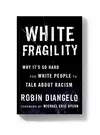When 2,529 people were offered a free subscription to their local newspapers, the Pittsburgh Post-Gazette and the Philadelphia Inquirer, only forty-four accepted—less than 2 percent—according to an academic study set to be published this year in the American Journal of Political Science.
Dan Hopkins, a political science professor at the University of Pennsylvania, conducted the study, titled “Unsubscribed and Undemanding,” in 2021. The purpose of the research, Hopkins said, was to assess practical ways to increase interest in local or regional news for an audience that seems more interested in national, partisan media outlets. (The pool of those offered subscriptions was made up of locals who had previously responded to political surveys.) Hopkins said that he was “surprised and dismayed” when he realized that only 1.7 percent had accepted the free subscription.
The findings add context to what has been a difficult start to 2024 for American media. There have been hundreds of layoffs across the industry—the Washington Post, Wall Street Journal, Los Angeles Times, Sports Illustrated, and Business Insider, among others, have all downsized. At the local level, half the counties in America have either one news outlet or none at all, according to Medill's 2023 State of Local News Project. Of those counties, over two hundred are “news deserts,” without any local media whatsoever.
Hopkins conceived the study after writing a book in 2018 on the nationalization of American politics. In The Increasingly United States he argues that declining interest and access to local news forces voters, who are not otherwise familiar with the specifics of their local governments' agendas or legislators, to default to national partisan lines when casting regional ballots. As a result, politicians are not held accountable, voters are not aware of the issues, and the candidates who get elected reflect national ideologies rather than representing local needs.
Hopkins and his coauthor Tori Gorton sent the free-subscription offers on postcards in the mail and targeted social media messages over the spring and summer of 2021. They ran a parallel study in which they determined the level of engagement with free local news stories (mostly about COVID) on social media. Some of the responses made clear that there were strong feelings at play.
One returned an invitation to subscribe to the Post-Gazette with a message: “[t]he P-G is an awful newspaper run by horrible bigoted people.” Other comments collected from the social platforms read: “no thanks! Fake News” and “GOTTA BE BAD FOR THE MEDIA WHEN YOU CAN'T GIVE THE CRAP AWAY.”
Neither paper has yet covered the study in its own pages. The Post-Gazette did not respond to requests for comment. Evan Benn, the senior director of special projects at the Inquirer, told CJR that the study was a welcome chance to gain insight into potential subscribers looking for local news, especially given that a grant from the University of Pennsylvania covered the cost of the subscriptions. He declined to respond on the record to the substance of the findings.
Hopkins did not find an obvious solution to the problem. “It is easier, as a researcher,” he said, “to study why things have changed than how to push in the opposite direction.”








Jump in the discussion.
No email address required.
Jump in the discussion.
No email address required.
omg they also fired this shitty political cartoonist
it's official: from here on out, the only news source I read is the Pittsburgh Post-Gazette. Does anyone know where Pittsburgh is or what a Gazette is?
Jump in the discussion.
No email address required.
I think a Gazette is one of those deers down in africa?
Jump in the discussion.
No email address required.
No that's a gazebo. I'm pretty sure because my hs bf said we could have s*x with his gazebo and that was too much weird furry shit for me so I tapped out.
Jump in the discussion.
No email address required.
Dodged a bullet there, sis.
Jump in the discussion.
No email address required.
More options
Context
My elementary school playground had a gazebo in it and in second grade I couldn't pronounce and/or didn't recognize the word so I called it the "casino". My grandfather got a real kick out of that when I visited them one day and told him about how I was chasing girls (tag) in the casino.
Jump in the discussion.
No email address required.
Did granpa slip a $100 in your pocket?
Jump in the discussion.
No email address required.
More options
Context
More options
Context
First of all, what are they doing with a gazebo? It is illegal to have one unlicenced.
Jump in the discussion.
No email address required.
More options
Context
More options
Context
More options
Context
They are dirty folk called "yinzers" ... they are Carp's people.
... they are Carp's people.
They also love coloring everything the color of pee.
Jump in the discussion.
No email address required.
Jump in the discussion.
No email address required.
More options
Context
More options
Context
I've never even heard of Pittsburgh, but i know a gazette is an animal from Indonesia, small and furry and bendy, sort of like a ferret but probably less stinky.
Jump in the discussion.
No email address required.
Yeah they eat coffee beans and then poop them out and the Indonesians sell the pooped out beans for a high price
Jump in the discussion.
No email address required.
Pittsburgers are disgusting.
Jump in the discussion.
No email address required.
More options
Context
More options
Context
Oh yeah, I think I remember somebody telling me they have them in the Philippines too.
Jump in the discussion.
No email address required.
More options
Context
More options
Context
More options
Context
More options
Context